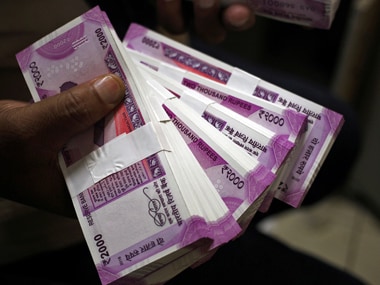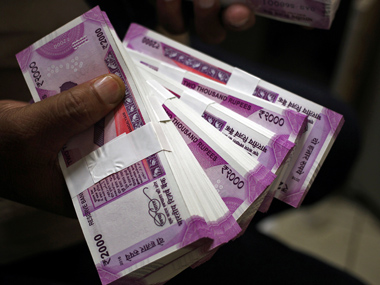There are reports indicating that the Union Government is contemplating recapitalising the public sector banks (PSBs) with a capital of Rs 30,000 crores. The banking sector in India has been under a lot of stress for almost a decade now. The NPA problem in the banking sector has only partially subsided due to the enactment of the Insolvency and Bankruptcy Code (IBC). It did decline by 12 percent but in terms of volume, it still stands at Rs 7.17 trillion and hence still has a potential to rupture the entire fiscal discipline of the PSU Banks. It must be noted that the government has already infused Rs 1,06,000 into the banks in the last financial year. In an ideal situation, banks should be a profit-making enterprise by earning a higher interest on loans than the interest which they give on deposits. Thus, to a layman, this situation should give rise to the question as to why then is the government continuously infusing taxpayers hard-earned money into the banking system. It should appear to the policymakers that the problem is systemic and this solution is not fixing that. The government presence in the banking sector in India, is more profound than in any developed country. The government controls more than two-thirds of the banking assets in India, but the government-run banks account for more than 90 percent of the total NPAs. [caption id=“attachment_6013191” align=“alignleft” width=“380”]  Representational image. Reuters.[/caption] Also, a good criterion to measure the efficiency of any corporate entity is its market capitalisation, i.e., the worth which the market attaches to the corporation and which is the total market value of all the shares of the corporation. The HDFC Bank, for instance, has had a market capitalisation which is more than that of 22 public-sector banks combined. Thus, the central question which the policymakers should focus on right now is the privatisation of the banking system. Globally, all the major banking and financial systems are manned and run by private players and not by state-run corporations. This is due to a simple reason, which is, that the business of banking is not a business of the government. The state and government can never run any economic enterprise efficiently. We can take numerous examples just by looking around ourselves. Consider one’s experience in a public bank and a private bank; it can take a few hours to get a Demand Draft made in a public-sector bank, whereas a private bank may actually get it delivered to you in person. One can also consider the example of India’s largest employer—the Indian Railways. It employs more people than the Indian Army. At more than 1.4 million people, the Railways hardly can deliver on-time rail service, an experience too common to even surprise anyone, so much so that there is an average delay of each train of 53 minutes. Whereas, private airlines in comparison are mostly on time. In the aviation sector, the loss-making state-run airline—Air India had the most number of customer complaints, ran late than all big private players and was also running into huge losses. Even an argument on cost is also not viable. The passenger cost on a private airline on a commercially viable sector like Mumbai-Delhi, will in most cases be lower than that of the Rajdhani 3-AC fare, if booked on time. Therefore, it doesn’t make any sense for the state to venture into a business of any kind, much less the complicated world of banking and finance. Hence, a similar outcome like that of the Railways and airlines is visible in the banking sector; it is just that the crisis in this sector is not limited to the sector alone. Instead, it becomes a macro-economic problem and starts affecting the macroeconomic indicators of the country, thereby negatively effecting economic growth. The argument for privatisation of banks and privatisation in general has been extensively made by various eminent scholars around the globe. Therefore, the current urgent need of the economy is a reversal of bank nationalisation by Indira Gandhi in 1969, which remains the single biggest fatal strike at the heart of the Indian economy, and if we extrapolate, it is the biggest cause of the current levels of poverty in India. However, the question that begs an answer is: given the advantages of private banking, why doesn’t the government go that path right away? The simple answer is that even though this is obviously good economics, it is also, equally obvious bad politics. For instance, there can’t be any bank loan waivers by the government, if the government is not the majority shareholder of the bank and loan waivers are quiet fashionable these days among the politicians. Hence, no amount of recapitalisation will ever be enough because bad lending practices will continue to rule the roost in the Indian banking universe. The banks will, therefore, be perennially loss-making enterprises and taxpayers will continue to fund them. The long-term effect of this vicious cycle is disastrous. Thus, the government, with its current mandate, is sufficiently equipped to take this tough decision rather than sticking to recapitalisation. (The writer is an Assistant Professor of Law at Maharashtra National Law University, Mumbai)
Globally, all the major banking and financial systems are manned and run by private players and not by state-run corporations.
Advertisement
End of Article


)

)
)
)
)
)
)
)
)



